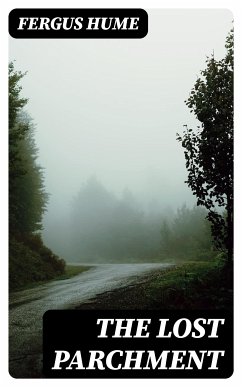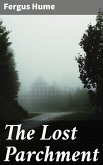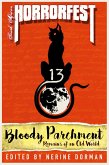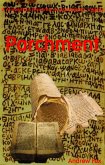In 'The Lost Parchment,' Fergus Hume expertly weaves a complex narrative that blends elements of mystery and adventure with a rich exploration of human character. Set against a backdrop of Victorian England, the novel follows protagonist Arthur Ainsworth as he embarks on a quest to uncover a hidden manuscript that holds the key to untold literary treasures. Hume's adept use of gothic elements and suspenseful prose not only captivates but also critiques the societal norms of his time, reflecting the tension between rationality and the supernatural. The novel's intricate plot and well-drawn characters invite readers to ponder the relationship between ambition and morality. Fergus Hume, an esteemed author of detective fiction, rose to fame in the late 19th century with 'The Mystery of a Hansom Cab.' His own experiences as an outsider in Victorian society-a period characterized by strict social stratification-likely influenced his portrayal of multifaceted characters navigating moral dilemmas. His ability to encapsulate the nuances of human interaction in a world governed by secrets makes 'The Lost Parchment' a remarkable addition to his oeuvre. Recommended for fans of classic detective stories and literary enthusiasts alike, 'The Lost Parchment' is a testament to Hume's narrative artistry. This novel not only entertains with its thrilling plot but also engages readers in deeper discussions surrounding authenticity, ambition, and the intrinsic value of literature.
Dieser Download kann aus rechtlichen Gründen nur mit Rechnungsadresse in A, B, BG, CY, CZ, D, DK, EW, E, FIN, F, GR, H, IRL, I, LT, L, LR, M, NL, PL, P, R, S, SLO, SK ausgeliefert werden.









